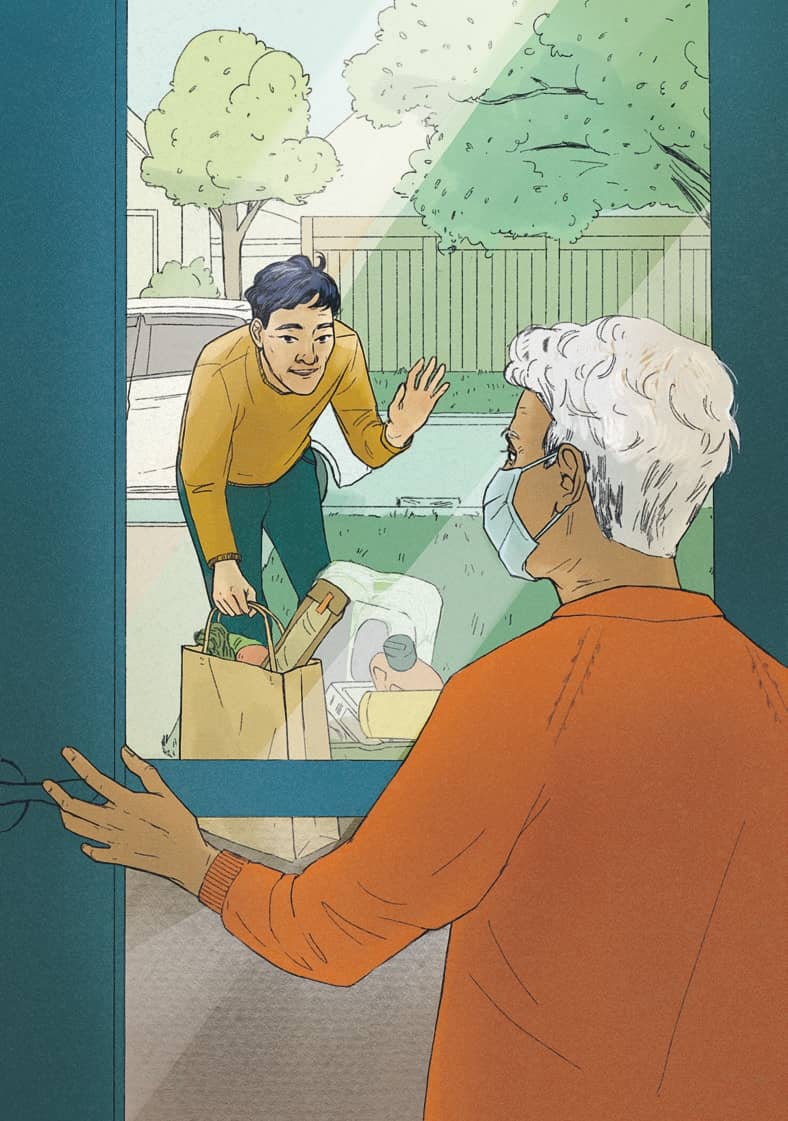
Yet there are some evolutionary reasons why human altruism should differ from that of other species. One popular hypothesis states that caring for others developed from parenting behaviours. Since human babies are born particularly vulnerable (thank you, big brains), they require unusually high amounts of care—just ask any under-slept new parent. To ensure that mothers and fathers won’t abandon these needy creatures, nature equipped us with two systems: one reward-inducing and the other stress-reducing.
Snug in the middle of our brain is a grape-sized area known as the insula, which is activated by such things as helping others, donating money to charity and, yes, caring for kids. Additional reward-related brain areas, the septal area and ventral striatum—the very same ones that light up when you find a winning scratch-and-win card— also buzz with activity when you take care of others. In other words, parenthood and other forms of caregiving are wired to the brain’s reward system.
هذه القصة مأخوذة من طبعة July/August 2020 من Reader's Digest Canada.
ابدأ النسخة التجريبية المجانية من Magzter GOLD لمدة 7 أيام للوصول إلى آلاف القصص المتميزة المنسقة وأكثر من 9,000 مجلة وصحيفة.
بالفعل مشترك ? تسجيل الدخول
هذه القصة مأخوذة من طبعة July/August 2020 من Reader's Digest Canada.
ابدأ النسخة التجريبية المجانية من Magzter GOLD لمدة 7 أيام للوصول إلى آلاف القصص المتميزة المنسقة وأكثر من 9,000 مجلة وصحيفة.
بالفعل مشترك? تسجيل الدخول